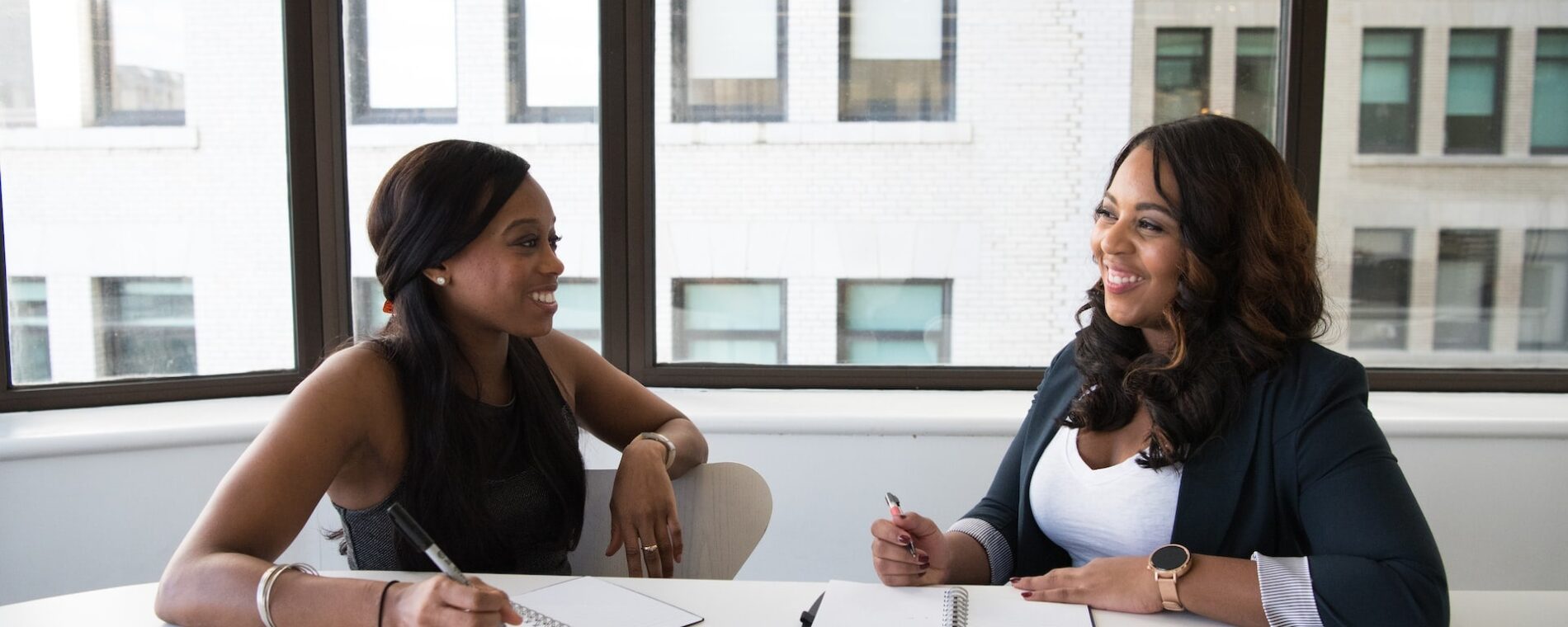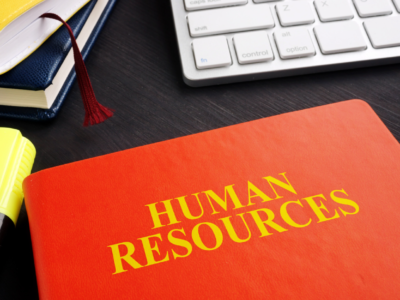Interviewers will ask a mixture of general, competency and behavioural questions to gauge your suitability for the role. To help you prepare, we have compiled a list of questions from sources such as Forbes and our expert recruiters with advice on how to best to answer the most common competency, behavioural and general interview questions.
What is the difference between competency and behavioural questions?
The main difference between competency and behavioural questions is what the interviewer is trying to assess. Competency questions are used to assess your skills for the job, whereas behavioural questions are used to assess how you work as a professional and how you fit into the team. You are likely to get a mixture of the two in your interviews.
Competency questions
What are competency questions?
Competency questions are questions about specific skills, such as organisational ability, teamwork, communication or customer service skills. You’ll be asked to give an example of how you’ve used the skill in the past.
How to answer a competency question
To create a good answer, find real examples – preferably recent and relevant to the role. You can also use examples from previous roles or voluntary work. Prepare one or two examples for each competency and frame them in a story format covering:
- what the situation was (the problem you had to solve)
- what you did to solve the problem
- what the result was
- What you learnt from it (optional)
You’ll know when you’re being asked a competency question, as they often start with “Tell me about a time when…” or “Can you give me an example when…” or “Describe a situation when…”
Typical competency questions could be:
Describe…
- … a stressful situation that you had to deal with (ability to deal with pressure)
- … a time when you had to deal with a difficult customer (customer-service)
- … a problem that you had to solve recently (for problem-solving)
- … a time you needed to learn something quickly (quick learner skills)
Let’s look at a more detailed example of how you can apply this knowledge for your next interview. First start by identifying the key skills highlighted in the job description.
Example job description for an events researcher role:
“A likeable and enthusiastic individual who has strong analytical skills, the ability to write in a concise and accurate manner and forge strong relationships. You will have excellent communication skills, some knowledge of the financial markets and a willingness to pull together as part of a team. A high degree of self-motivation and drive is required to succeed. You must be able to work to deadlines and have a strong work ethic. Fluency in French is a distinct advantage as is experience in conference producing.”
For this role, you could expect questions about your communication skills, attitude to work and ability to work to deadlines.
Potential competency questions for the job description above are:
Tell me about a time when you…
- … had to work to a strict deadline / …were under a lot of pressure to finish a project (for deadlines / work ethic)
- …your colleagues needed to rely on you (for teamwork)
- …you had to compete with someone else (for drive /ambition)
As we mentioned earlier you want to find real examples – preferably recent and relevant to the role. For example, in response to “Tell me about a time you had to work to a strict deadline” you could say:
“Last month my manager asked me to prepare an urgent report about events venues in Paris. He wanted me to compare venues for cost, location and size. I knew this report would take at least three days, but I also had other urgent projects. So I asked for a brief meeting to reprioritise my workload. I arranged to come into the office an hour earlier to make use of the French time differences, and I outsourced some research work to my contacts in Paris. I stayed late to finish the project and made sure it was on my boss’s desk well before the deadline, so he could review it and request any last-minute changes.”
Practise telling your stories so you sound natural. Your story doesn’t need to be too long, but you might get follow-up questions if the interviewer wants extra detail.
If you change the angle slightly, you can also use one story to demonstrate more than one competency. For instance, the story above could also be used to highlight problem-solving, teamwork, ability to work under pressure and communication skills.
Behavioural questions
What are behavioural questions?
No matter who you’re talking with, you’re likely to get a form of a question asking you to talk about something you did in the past that will pertain to the job at hand.
These are called behavioural interview questions, and they are probing for specifics about how you handle something the company thinks will be important in that job.
Behavioural questions usually begin with a phrase like, “Describe how you handled a situation when…” and then give you a chance to share something you’ve done in the past that will give the interviewer an idea of how you’d handle the job at hand.
Example behavioural interview questions
These are open-ended questions asking you to share something that will show the employer how you’ve handled situations they believe are similar to theirs. For example:
- Tell me about a time when you had a great deal of pressure and not enough time to get everything done, and how you handled it.
- Have you ever been in a situation where you didn’t have enough work to keep busy? What did you do?
- Give me an example of how you set goals and objectives, and how you keep track of your progress.
- Describe a time when you had to make a difficult decision, and how you made the decision and got other people on board with your choice.
- Have you ever had a difficult situation with a boss? How did you handle it?
How to answer behavioural interview questions?
One of the challenges of preparing for these questions is that you don’t know precisely what they’ll ask you about. But that’s OK because you can prepare a few stories that you can then modify to suit different types of questions. Here is how to prepare:
1. First, list key stories from your career.
Begin by listing five or six of the most interesting and challenging things you’ve done. This will become your story foundations, to use over and over again.
Did you help convert a software system in the middle of the year and have to handle everything that went wrong? Did you join a company in financial trouble and have to manage a discouraged workforce back to productivity? Are there special projects in your experience that you want to talk about?
2. Once you have your key accomplishments listed, prepare some stories about them to illustrate your ability to solve problems and get things done.
For instance, you can talk about how you recruited others to help with the software conversion and influenced your manager to give you budget for hiring extra help. Or you can mention how you approached the situation when you realized your new boss had fired the last five people in your job, and you didn’t want to be the sixth.
3. Review the job description and the company to look for hints about what might be important to them.
If the posting emphasizes attention to detail, make sure your stories show how you notice all the little things. If it emphasizes being able to adapt quickly, make sure you have a story about needing to change direction quickly.
4. Then script your stories out with three parts: situation, action and results.
Start with a sentence that talks about the situation and the challenge you faced. Next, say what actions you took, and finally, give the results of your actions.
Make it short and sweet, and leave yourself open for more questions if the interviewer wants you to go deeper with your answer.
5. Adapt the same stories for different situations, and add or subtract details of the specifics.
As an example, here are three different questions, and you can see how the same answer could work for all of them:
- Tell me about how you have set up a new office from scratch in the past.
- Describe a situation with extremely high expectations, and how you met the challenge.
- Give me an example of how you set goals and meet your objectives.
Answer:
“When I joined ABC Company in 2004, the CEO was working out of her home and there was no office at all yet. We had a very short timeline and a very limited budget. I called some of my commercial leasing contacts from my previous job, and got leads on several companies who’d had cutbacks so had surplus office space to rent out temporarily. By keeping a very detailed list of what needed to be done, and using my contacts and knowing where to get the best services for the best price, I had us in new quarters within six weeks, including being online, with phones, comfortable desks and all the basic services running.”
You can see how easy it is to adapt that answer to a question about a demanding boss, a pressing deadline, using contacts to get things done, or many other scenarios. By adding or deleting a few words, you can customize your answer to their question while still using one of your foundational stories about your work experience to illustrate your abilities.
General Interview Questions
1. Tell me a bit about yourself
This seems like a straightforward enough place to start: a chance to break the ice and to share with your interviewer your passions and personality. But while it’s tempting to share your life story, interviewers want to hear about things relevant to the role. It’s best to choose a few key things that will showcase your suitability for the position. This could be specific skills, qualifications, experience, or passion for your area of expertise. Be thorough and show that your answer is well considered, but keep it concise.
2. What are your main reasons for applying?
It seems such an obvious one, but this is where many candidates get caught out. Start by identifying the areas of the business that appeal to you, whether it be the growth opportunities or working culture, and detail how these attributes align with your passions, interests and experience. A bit of homework here goes a long way.
3. Why should we hire you?
A good answer here will show that you’ve really considered your suitability for the role. Make it clear that you believe you meet all of the role requirements, then back it up with examples of how you’ve demonstrated that skill in the past. Let the interviewer know how these attributes would benefit them in your new role.
4. What are your strengths and weaknesses?
Here’s your chance to stand out. In describing your strengths, your answer should focus on what you bring to the job. Outline examples of how you’re proactive, focusing on how decision making, leadership skills and showing initiative, has proved successful in the past. When it comes to weaknesses, don’t shy away from talking about where you fall short. No matter how hard we try, we all have something we wish we were better at. Acknowledging this is key to professional development, and will earn you extra brownie points with your interviewer.
5. Why is there a gap in your work history?
“Employers understand that people lose their jobs and it’s not always easy to find a new one fast,” says Susan Nethery, the director of student affairs marketing at Texas Christian University, who often advises recent grads on the interview process. When answering this question, list activities you’ve been doing during any period of unemployment. Freelance projects, volunteer work or taking care of family members all let the interviewer know that time off was spent productively. How to explain a gap in your CV.
6. Where do you see yourself in five to 10 years’ time?
Even if you can’t predict what you’ll be doing in 10 days from now, evidence of long-term planning is impressive. The perfect answer to this question will outline a carefully considered growth plan for skills, experience and responsibilities. Research what a reasonable career path in your role would look like, but focus your enthusiasm on the current position.
7. Tell me about an accomplishment you are proud of
The STAR technique (situation, task, action, result) is a good way to structure your answer for this. Make it work related, and start by briefly explaining the task and the challenge involved. Describe the action you took and the processes you followed, remembering to be clear about the part you played in the result. The result is the most important part, as a successful outcome proves that your actions were effective.
8. Do you have any questions?
Hopefully you’ve made it this part of the interview relatively unscathed, but don’t take the foot off the pedal just yet. Interviewers love questions, so it’s always worth preparing a few in advance. As well as a chance to build rapport, this is the perfect opportunity to demonstrate your genuine interest and enthusiasm for the role. Tailor your questions to the role and the company. Keep things natural and authentic and remember that some questions may reveal that you either weren’t listening earlier on or haven’t done your research.
In Summary
Remember the key to a having a good interview is preparation. This is especially important if you find ninterviews nerve-wrecking. The more prepared you are the less you will feel and just remember as much the interviewer is assessing your suitability for the role, you are also assessing the suitability of the company for you.
Finally, it goes without saying that more people are interviewed for jobs than who gets the job. So if you receive an ‘Unfortunately we’ve decided to…’ email, don’t despair. We’ll tell you what we tell our candidates. Keep going. Try and get feedback if you can to help you prepare even better for your next interview.
If you’re looking for a new job, search our available roles here.










